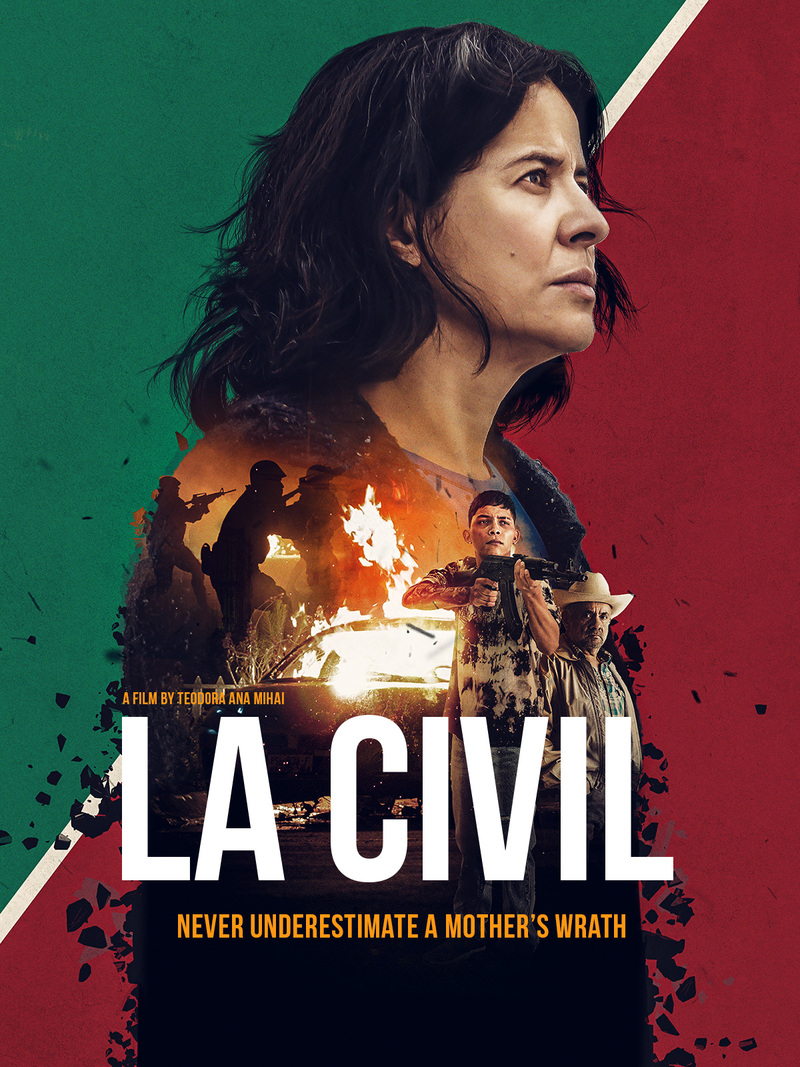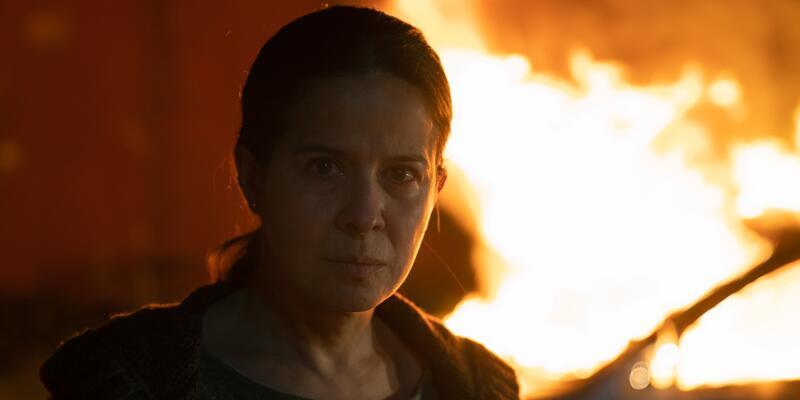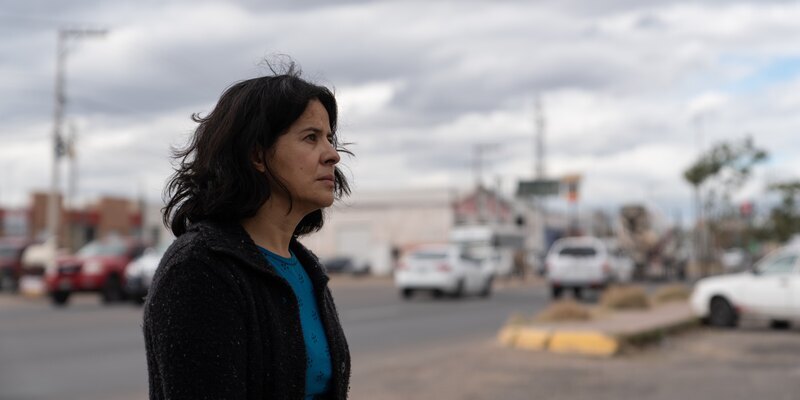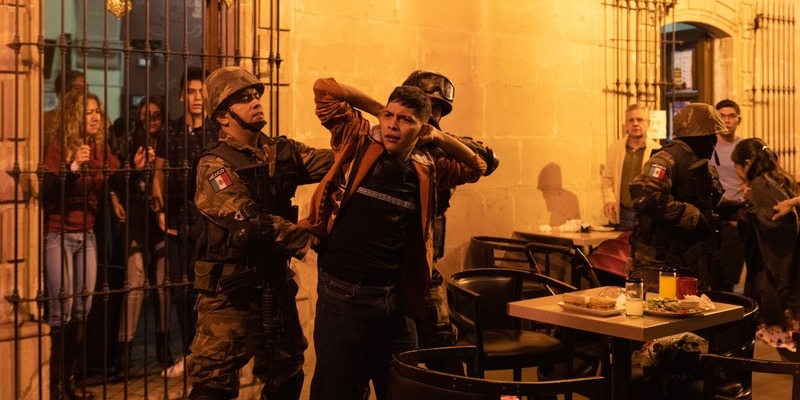
Review by
Eric Hillis
Directed by: Teodora Ana Mihai
Starring: Arcelia Ramìrez, Juan Daniel García Treviño, Álvaro Guerrero, Jorge A. Jimenez

As I write this review the world's attention is focused on one
particular warzone. As director Teodora Mihai's fiction debut
La Civil reminds us, there are many people around the
world who don’t live in official warzones yet might as well. Mexico's
cartel wars have racked up casualties to rival several conventional
wars, with mass graves regularly discovered, often filled with the
bodies of those innocently caught up in trouble they sought to
avoid.

La Civil is executive produced by the Dardennes, and it's
easy to see why they were attracted to the project. Like several of
their own works, Mihai's film takes a cinema verite approach to
documenting a woman's desperate quest for help. That woman is Cielo (Arcelia Ramírez), who is drawn into the bloody world of the cartels when one such
group kidnaps her teenage daughter Laura (Denisse Azpilcueta).
When Laura fails to return home one night, Cielo is approached the
following morning by El Puma (Daniel Garcia), a young gangster
who looks no older than a schoolboy. El Puma's arrogance and feeling of
invincibility leads him to inform Cielo of his demands while in a very
public restaurant. He knows nobody dares challenge him, something Cielo
has yet to learn. El Puma demands 150,000 pesos and the pick-up truck
owned by her estranged husband Gustavo (Álvaro Guerrero). Cielo
and Gustavo can't gather together the full amount, which leads to more
demands from El Puma.

Let down by a disinterested local police, Cielo turns to a group of
violent Federales who battle the cartels on their own terms. Initially
stunned by their violent methods, Cielo nonetheless embeds herself with
this group in her desperate search for her daughter. But we get the
nagging sense that the Federales, led by a Lieutenant Lamarque (Jorge A. Jimenez) who seems to revel in violence, are simply another gang, and they may
well jeopardise Cielo's quest.
Like the heroines of the Dardennes' films, Cielo finds a growing number
of doors closing on her face. For every person who takes a risk to help
her there's another who understandably isn't willing to incur the wrath
of the cartels. With male figures like Lamarque and Gustavo proving
useless at best and a possible hindrance at worst, it initially seems
like the film might be making a feminist statement, but we later see
that the cartels operate something of a matriarchal business with
cold-blooded women as responsible for Cielo's predicament as their male
counterparts. This isn't a war of the sexes but rather a one-sided
conflict fought between the have-nots and the haves-but-want-lots-more.
The working class folk here are essentially oppressed by paying a tax to
the cartels if they want to stay alive.

Mihai comes from a documentary background, and much of
La Civil resembles a document of some warzone. The camera
sticks close to Cielo, as though she's a guide through this world that
she's only just coming to terms with herself. A brutal shootout that
makes us question the motives of the Federales is filmed in one-take and
resembles the recent films of Michael Mann, its digital sheen making the
action feel all too real. Such moments mark Mihai as someone who might
possibly be snapped up to helm a Hollywood action movie, but her film's
bursts of violence contradict the old maxim that every war movie is a
pro-war movie. Her action is adrenalin pumping, but never thrilling or
exciting, rather horrifying and deeply grim. La Civil is
an anti-war movie set in an unrecognized warzone.


